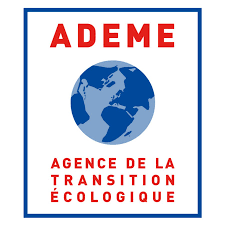Project manager at the CMA
Project duration
4 years (2022-2026)
Research team involved at the CMA
Project type
Partners
- DEGETEL (Coordinator)
- ARMINES ( CMA + CES)
- LINKIO
- PLÜM
- WORLDCAST SYSTEMS
Project description
The project is in line with the objective of achieving carbon neutrality by 2050, by encouraging the integration of intermittent renewable energies into the generation mix without risk to the electricity system.
The implementation of a 100% renewable energy scenario requires the transition from a production-consumption balance planned on D-1 to a balance managed dynamically in real time, capable of adapting to all types of contingencies, from unforeseen variations in production to technical incidents in the network. In addition, the increase in decentralised solar production and the massive growth of the electric vehicle market will lead to congestion and place heavy demands on the low-voltage distribution network. Without dynamic management of diffuse loads, this will require costly infrastructure reinforcements to be paid for by local authorities and passed on to users.
The aim of the project is to develop a real-time, simultaneous load management solution tailored to the markets of diffuse residential consumers, professionals, businesses and local authorities in France. By combining the project’s real-time demand flexibility management with storage solutions, the project aims to move power system management towards a dynamic, constantly adapting production-consumption balance that will continue to play on the production side and adjust the balance in real time by also playing on the consumption side.
The project’s objectives are defined according to 4 criteria:
– Technological: Removing the barriers that prevent broadcast infrastructures from being used to transmit remote controls in real time to massive quantities of loads in a targeted and secure manner (a potential of 500 MW for domestic use and 334 MW for electromobility charging over 5 years as part of the project);
– Sociological: Acting on motivations in a way that is adapted to each relevant socio-category and socio-energy profile to interest customers and encourage them to understand and adopt innovative tariff offers over the long term;
– Economic: Develop an innovative, economically profitable business model that enables consumers to recoup part of the gains generated by the flexibility they make available;
– Environmental: Limiting, reducing or shifting consumption to times when electricity is produced 100% by renewable energy sources, so that there is no longer any need for controllable carbon and nuclear energy sources.


